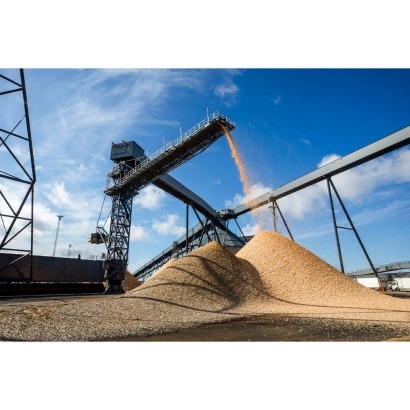
“Metsä Group’s products replace fossil materials in people’s daily lives. Pulp and paperboard are used as raw materials for numerous consumer goods, and we are able to produce them in Kemi with considerably lower emissions. Finland needs sustainable investment that creates employment, income and a strong belief in the future,” says Ilkka Hämälä, President and CEO of Metsä Group.
The Kemi bioproduct mill produces 1.5 million tons of softwood and hardwood pulp annually. It uses zero fossil fuels and will be completely waste-free by 2030. Featuring cutting-edge technology, the mill operates a fully-fledged circular economy, as all the wood raw material and production side streams are efficiently used for various bioproducts and bioenergy.
For example, the mill produces tall oil and turpentine, as well as two terawatt hours of renewable electricity per year, which is equivalent to the annual consumption of 100,000 electrically heated single-family homes. This accounts for approximately 2.5% of Finland’s total electricity production. Thanks to its efficient chemical cycles and other environmentally efficient solutions, the new mill’s emissions are lower than the limits specified in the currently valid environmental permit for the closed Kemi pulp mill, despite the considerable increase in production capacity.
The bioproduct mill will use 7.6 million cubic meters of wood per year, 4.5 million cubic meters more than the old mill. The wood supply will be based on regenerative forestry with the aim of achieving a verifiable improvement in the state of nature by 2030.
The modernization and bottleneck investments made in Kemi paperboard mill will increase the annual production capacity of white top kraftliner by around 40,000 tons to 465,000 tons. This increase will further strengthen the Kemi mill’s position as the world’s largest producer of coated white-top kraftliners, whose products are used worldwide as surface material for corrugated packaging.
The integration of the bioproduct mill and the paperboard mill, as well as the modernization of the paperboard mill’s production line, will considerably improve the paperboard mill’s water and energy efficiency. The investments will reduce the mill’s water consumption by 40% and energy use by 5% per ton of paperboard produced.
Metsä Group’s completed, ongoing and planned investments since 2015 total approximately seven billion euros. The investments enable the company to better meet the needs of forest owners and customers across the forest industry’s value chain and contribute to climate change mitigation. Energy efficiency, a smaller environmental load and the bioproduct mill’s fossil free operations support Metsä Group’s and its customers’ sustainability targets.

